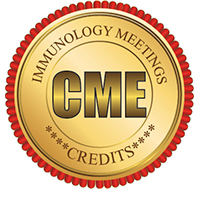
Mark Schweizer
Nova Southeastern University College of Dental Medicine, USA
Title: HIV and Oral Health in the Era of Antiretroviral Therapy
Submitted Date: 31-10-2017
Biography
Mark Schweizer has completed his Doctor of Dental Surgery from the University of Maryland, College of Dental Medicine and a Master’s in Public Health from Nova Southeastern University College of Osteopathic Medicine. He is the Director of development and special projects at Nova Southeastern University College of Dental Medicine and Dental Director, Southeast AIDS Education and Training Center. He has lectured nationally on oral health and HIV and has developed, implemented and evaluated multiple oral health HIV programs across the State of Florida. He has been providing oral health care to HIV/AIDS patients for over 25 years. \r\n\r\n
Abstract
Oral health problems can generate considerable negative effects on the quality of life of patients living with HIV/AIDS (PLWHA). Almost 90% of PLWHA experience at least one oral manifestation and 32-46% will have at least one major HIV-related oral health problem. Oral manifestations are often the first indicator of symptoms and disease progression. In addition, a large number of PLWHA do not have access to regular dental care. Lack of providers, finances, stigma, and awareness of the importance of oral health are all factors that affect access. Poor oral health can impact food intake and nutrition, leading to poor absorptions of medications, leaving PLWHA susceptible to progression of the disease. The relationship between oral health diseases and other systemic disease has also been well established. As part of the goal to decrease the transmission of HIV through viral suppression, antiretroviral therapy (ART) remains one of the major tools used by health professionals. The number and severity of oral manifestations have decreased with antiretroviral therapy, but there has been a shift in the type of oral manifestations which may be attributed to the improvement in immunity gained by therapy and the increased longevity of patients on ART. This presentation will serve to update health professionals on the shift in oral condition in the era of ART and the presence and early treatment of oral lesions. In addition, there will be focus on the role the dental professional plays in the overall health and viral suppression of PLWHA.

Bhaswati Sengupta
All India Institute of Hygiene and Public Health, India
Title: An Epidemiological study on knowledge, practice and stigma regarding HIV/AIDS among transgender population in Kolkata, India
Submitted Date: 31-10-2017
Biography
Bhaswati Sengupta is Director Professor at All India Institute of Hygiene and Public Health, Kolkata, India. The Institute is a premier one, in teaching and training Public Health since 1932 under Ministry of Health and Family Welfare, Government of India. She has been engaged in teaching and training Public Health for more than 25 years. She is mainly a Teacher, training Post-graduate medical and paramedical students, and administrative work of the department and the institute. She has more than 100 publications in national and international journals. Her subject of interest is HIV/AIDS and she had undergone training on HIV/AIDS epidemiology as a Fogarty Scholar in the Department of Epidemiology UCLA, USA under Professor Roger Detels.
Abstract
Transgender are those who have a gender identity or gender expression that differs from their assigned sex. Transgender also include people, whose gender identity is the opposite of their assigned sex (trans men and trans women).They may identify as heterosexual, homosexual, bisexual, asexual, etc., or may consider conventional sexual orientation labels inadequate or inapplicable. In India, commonly identified as hijras and are officially recognized as third gender by the government, being neither completely male nor female and have been given the status of third gender and are protected as per the law despite the social ostracism. They are subject to poverty, feel rejected, or flee their family of origin. Many work as street beggars and sex workers for survival. Their mobile nature, unsafe sexual practice makes them vulnerable to STDs and HIV/AIDS. The purpose of the study was to determine among the transgender, their sexuality and knowledge, attitude and practice towards sexually transmitted diseases including HIV/AIDS. This is essential for policy making at the national level for the control of HIV/AIDS. 52 transgender persons were purposively selected from a NGO at Kolkata, working with this group and catering to their needs. A questionnaire with relevant questions pertaining to their sexual habits and knowledge about HIV/AIDS and STDs was used. A majority of the group (59.6%) belonged to 20-30years. Males comprised 84.6%, while others identified themselves as third gender. 86.5% were married and the rest (13.5%) were single! 3.5% were sex workers and the rest had other occupation. 13.9% were illiterate and 16.7% studied till high school. 100% had heard about HIV/AIDS and knew about transmission by sexual route but only 75% knew about transmission by sharing of needles and syringes, 50% from mothers during pregnancy and 94.2% by blood transmission. About 40% had past history of STDs.






